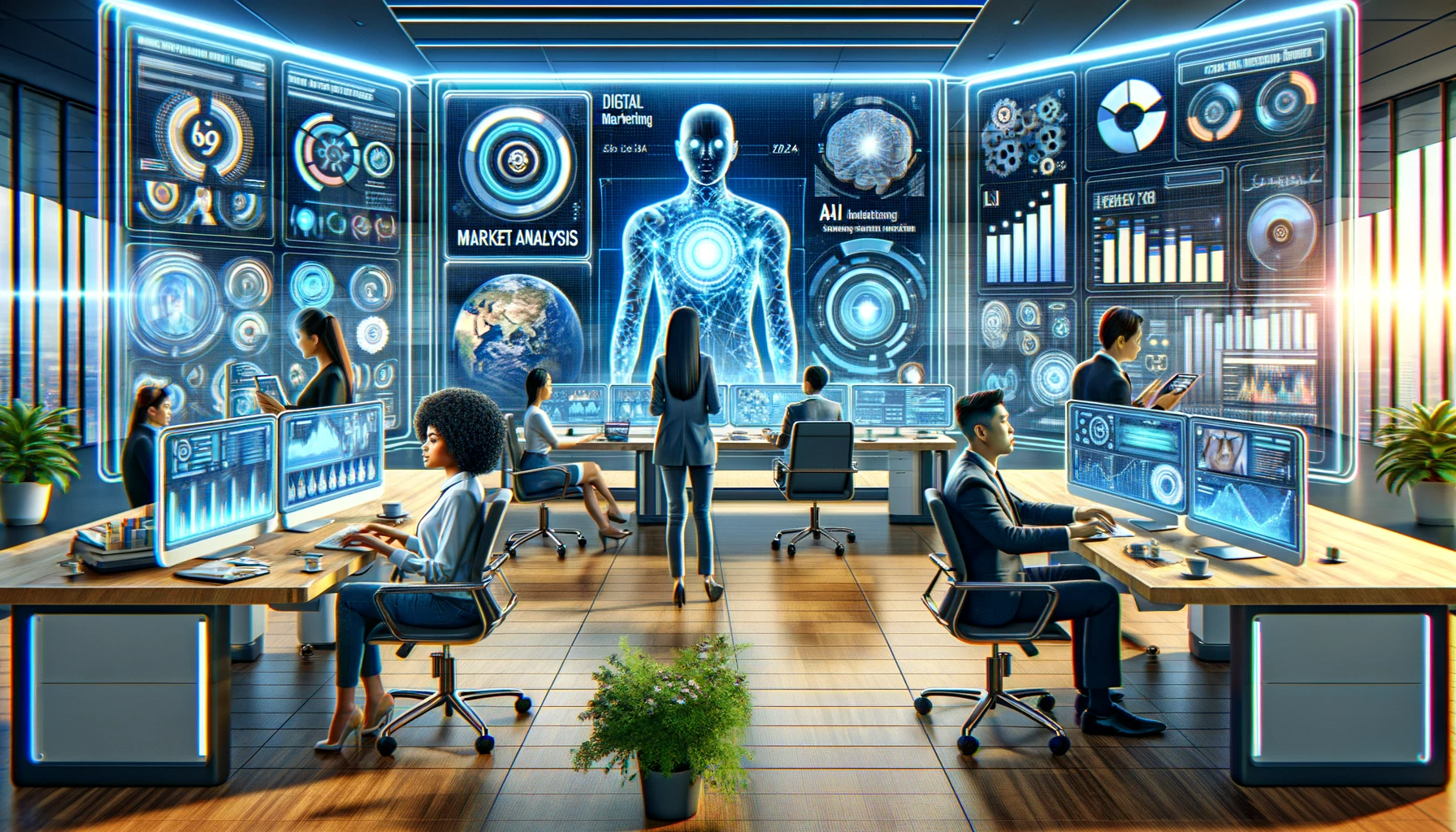Introduction
The landscape of digital marketing is rapidly evolving, with Artificial Intelligence (AI) playing a pivotal role in shaping its future. As we step into 2024, AI’s influence on digital marketing is undeniable, revolutionizing how marketers understand their audience, create content, and optimize campaigns. This article delves into the significant impacts of AI on digital marketing and outlines the essential skills digital marketers must possess to stay ahead in this AI-driven era.
Impacts of AI on Digital Marketing
Enhanced Customer Understanding
AI has empowered marketers with deep insights into customer behaviors, preferences, and feedback. By analyzing vast amounts of data, AI helps in segmenting customers into distinct groups, each characterized by specific needs and goals. This granular understanding enables marketers to tailor their strategies more effectively, ensuring that they address the unique demands of each segment.
Revolutionized Content Creation
The advent of natural language processing (NLP) and generative AI models has transformed content creation in digital marketing. Marketers can now leverage these technologies to produce highly relevant and engaging text, audio, and visuals. AI-driven content is not only more aligned with customer expectations but also more efficient to produce, allowing for a greater scale of content generation.
Optimized Campaigns and Automation
AI’s capability to learn and adapt through machine learning and data analytics is a game-changer for campaign optimization. Marketers can now automate their campaigns, continually test and enhance their performance, and make real-time adjustments based on immediate feedback and insights. This level of automation and optimization ensures higher ROI and more effective marketing strategies.
Essential Skills for Digital Marketers in 2024
Data Analysis and Interpretation
In an AI-driven digital marketing world, the ability to collect, process, analyze, and interpret data is crucial. Marketers must have the skills to derive meaningful insights from data, which will guide informed decision-making and strategy development.
Content Creation and Personalization
Crafting valuable and relevant content across various formats and platforms is key. Marketers need to optimize content not just for SEO but also for user experience, personalizing it to resonate with different audience segments.
AI Integration and Automation
To harness the full potential of AI, marketers must be proficient in integrating various AI tools and software into their workflows. This includes leveraging chatbots, programmatic advertising, and AI-driven content generation to streamline and optimize marketing tasks.
Communication and Collaboration
Effective communication and collaboration are more important than ever. Digital marketers must be adept at interacting with team members, clients, and customers, fostering an environment where feedback and suggestions are actively exchanged.
Critical Thinking and Creativity
AI doesn’t replace the need for logical, analytical, and creative thinking. Marketers must employ these skills to solve problems, make strategic decisions, and develop innovative digital marketing strategies and solutions.
Prompt Engineering
A unique skill that has emerged with AI advancements is prompt engineering. Digital marketers must be skilled in crafting effective prompts that help language models produce desired outputs. This involves testing and refining prompts to ensure the output’s quality and relevance.
Conclusion
As AI continues to redefine the digital marketing landscape, marketers must evolve and adapt. By mastering data analysis, content creation, AI integration, communication, critical thinking, and prompt engineering, digital marketers can stay at the forefront of this exciting and ever-changing field. The future of digital marketing is undeniably intertwined with AI, and those who embrace this technology will lead the way in 2024 and beyond.
